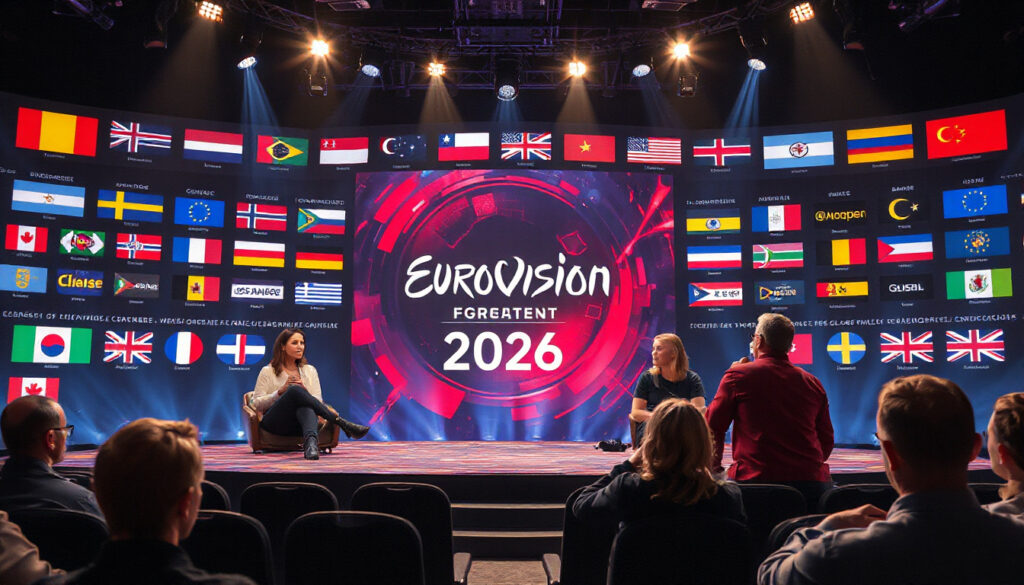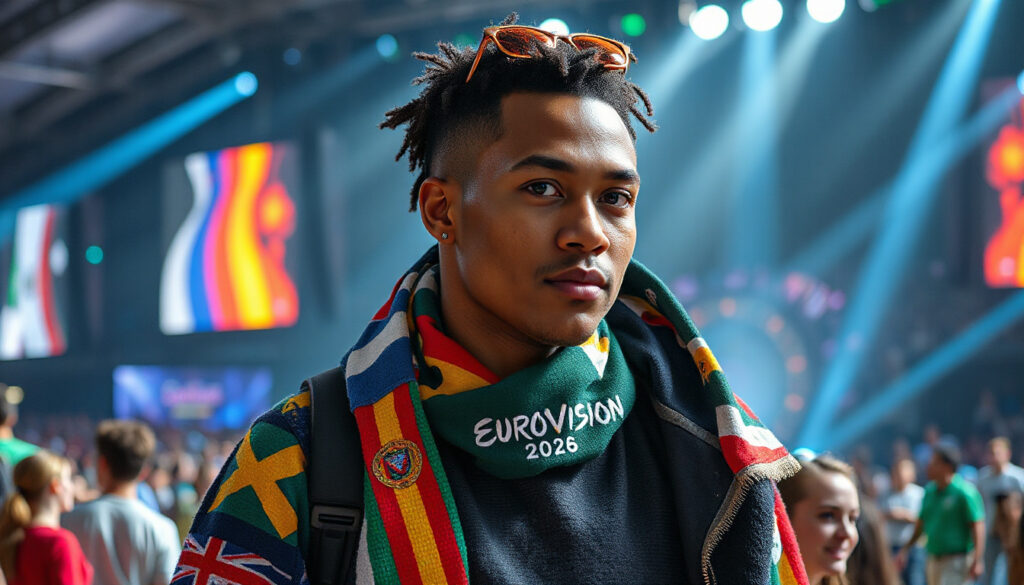Exploring Diverse Voices: Eurovision 2026’s Commentary Languages
When Eurovision comes, music and show work as one. Millions watch. They listen to guides for each act and each vote. Vienna in Austria hosts Eurovision 2026. Songs and languages share the stage. The contest appears in many tongues worldwide. This mix of words and voices makes the event warm and clear.

Why Commentary Languages Matter for Eurovision
Eurovision brings nations and cultures. Each viewer hears words that bind acts and votes. The word guides do the work by:
• Helping each viewer grasp the songs and the voting rules
• Bringing a local touch and fun to each broadcast
• Giving bits of news about each artist and nation
• Letting sign language work for those who need it
A spread of spoken tongues shows the contest’s belief in inclusion and culture.
What to See: A Look at Eurovision 2026 Commentary
1. A Wide Range of Languages
Eurovision 2026 will talk in at least 37 tongues. Both main and local words will play a part. Some of the tongues that stand out are:
• English, French, and German – words known across the world
• Finnish, Swedish, and Sámi tongues – words of small groups in host or partaking lands
• Spanish, Russian, Italian, and Dutch – words that win fans in many lands
• Less heard tongues like Esperanto and Simple English – words to help more fans
This mix makes sure that many viewers hear words in the language they know well. Each word pair links the event with its audience.
2. Sign Language Interpreters for More Access
Many broadcasters now bring sign language teams to the stage. Finland’s UMK24, a selection for Eurovision songs, showed sign language for Finnish and Finland Swedish. Their live work lets deaf or hard-of-hearing fans see each act. In 2026, sign language is set to stay and perhaps grow. The work of signs connects fans with each beat.
3. Commentary Teams and Their Parts
Commentary is a group task. Teams work as one pair by pair:
• Main voices tell the words and set the tone
• Side voices add hints or local jokes
• Sign language teams work with the hands for those who need it
• Country voices shout the votes in live moments
In recent shows, Finland picked a guide for each spoken word stream. For example, Mikko Silvenoinen talked in Finnish. Johan Lindroos and Eva Franz worked in Swedish. In a similar way, Ukraine and Russia saw guides who stood for their lands.
4. International Broadcast Partners at Work
Along with the host ORF from Austria, Eurovision 2026 works with many channels. Estonia’s TV3, Spain’s Ten TV, and the Dutch OutTV bring their own word teams. Each team speaks in a local way. Their work gives each land a fresh take on Eurovision. This mix keeps Eurovision both European and global.
How Commentary Shows Eurovision Trends for 2026
A look at the many tongues and signs used in Eurovision tells us of trends today:
• Respect for culture and nation – smaller tongues such as those of the Sámi show a nod to all voices
• New tech that brings quick word links and live translation
• Building towns of fans – local voices talk with fans on social sites and before or after the shows
• Access for all – the live work of sign teams shows why all fans must join in
What Eurovision Fans Should Know and Look Forward To
If you await Eurovision 2026, keep in mind these steps:
• Look up your land’s plans as they set the stage for word guides
• Try out many spoken streams when they come – you may find a voice that fits you well
• Use sign streams if you or those you know need them – these streams work hard to show each act
• Watch international channels and online sites for many tongue choices
• Chat with other fans about word teams – talk about voices to grow your love of the show
Final Thoughts: A Joy in Many Languages
Eurovision now holds more than music. It binds words from many tongues and hearts from many lands. Eurovision 2026 shows a spread of language and sign words. Whether you sit with a known guide, try a new tongue, or watch the live sign work, the event calls you to join a mix of many voices.
Get set for the 70th Eurovision with voices that come side by side—united, varied, and clear.
Next Steps:
- Check your local channel’s Eurovision page for word guide news.
- Visit online sites that run Eurovision live with many tongues.
- Join fan chats to share thoughts on your favorite voices.
- Watch for signer streams so all may join in.
Eurovision 2026 brings more than songs—it brings voices from everywhere, each word close in meaning and heart.







